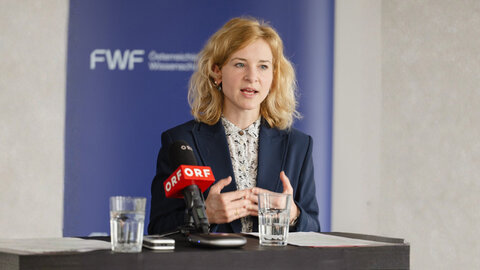Stepping Stone or Stumbling Block? Study Sheds Light on the Effects of Early Funding on Research Careers

The Research on Research Institute (RoRI), which includes 20 funding organizations and research institutions (including the FWF), has just published the study “Matthew effect and early-career setbacks in research funding – a replication study.”
The study examines the question of how early funding decisions influence further academic careers. The study focuses on two opposing effects: the Matthew effect (cumulative advantages of early funding) and the early-career setback effect (possible increase in performance after early failure). Application and publication data from six funding organizations was used to determine the extent to which early funding influences later funding opportunities and scientific productivity. The results provide important insights for planning funding strategies.
The analysis included data from six research funding organizations: FWF (Austria), FNR (Luxembourg), Wellcome Trust (UK), CIHR, SSHRC, and Health Research BC (Canada). A total of 109,624 applications from 14 funding programs were evaluated. For the FWF, pseudonymized data from 15,366 applications from the Schrödinger and START programs and Principal Investigator Projects from the years 2009-2020 as well as aggregated publication data (citation rates) of the applicants were used.
The following key findings emerged for the FWF and for basic research in Austria:
- Stronger early-career setback effect
This effect is more pronounced in the careers of FWF-funded researchers than in most other funding organizations, indicating that promising researchers whose first proposals fail can still successfully apply for funding later on. However, this finding is partly due to selection processes: Very high-performing researchers who missed approval by a narrow margin are most likely to remain active and submit new proposals.
- Weaker Matthew effect
Compared to other funding agencies, the FWF’s programs show less of a cumulative advantage through early funding. Researchers funded at an early stage are somewhat more likely to be successful later on, but much less automatically than in other organizations.
Assessment focused on current project quality
The results indicate that earlier approvals at the FWF have comparatively less influence on subsequent funding decisions than at other funding institutions. This indicates that the decision-making process is more strongly oriented towards the scientific quality of the proposals submitted.





